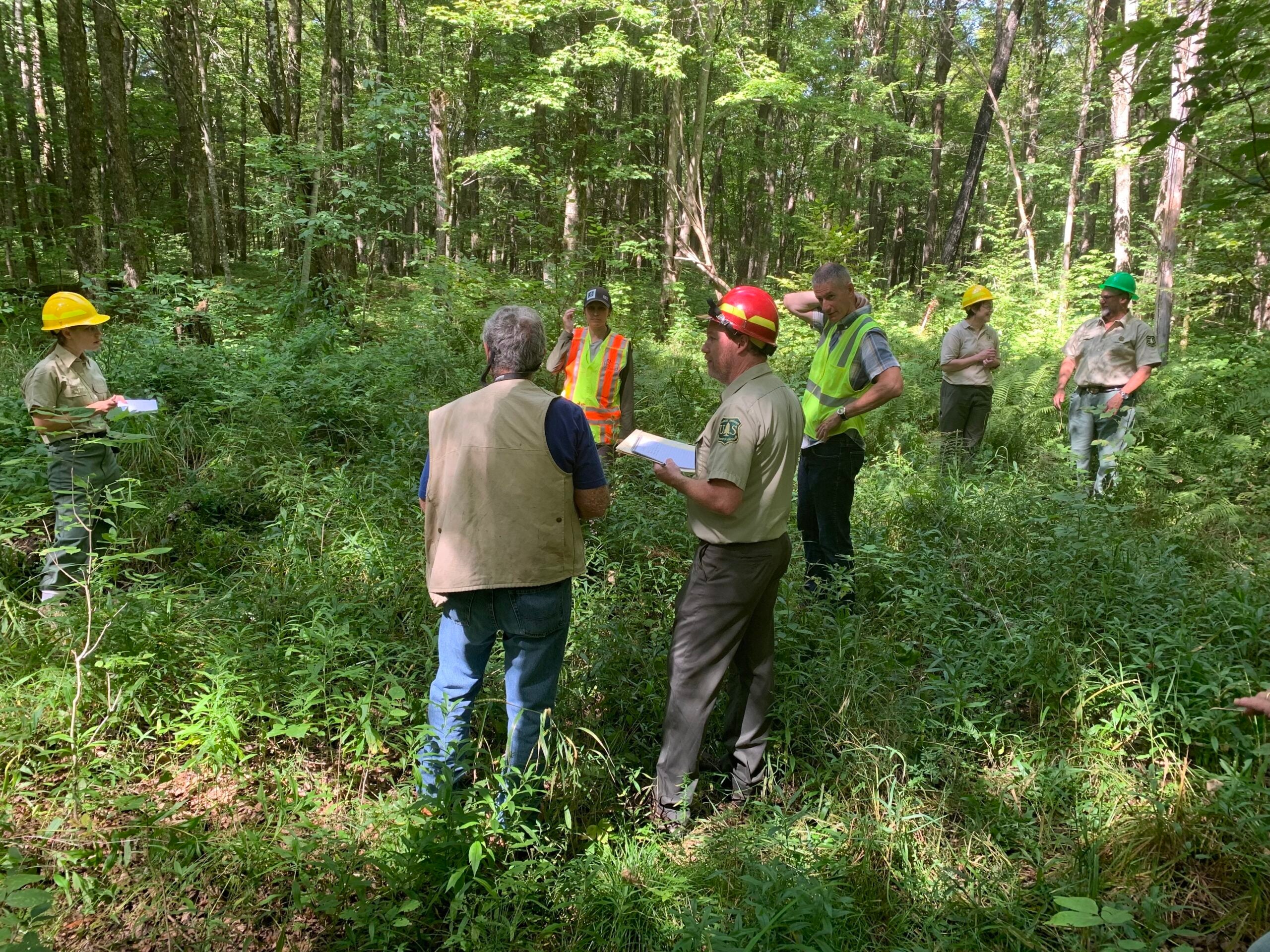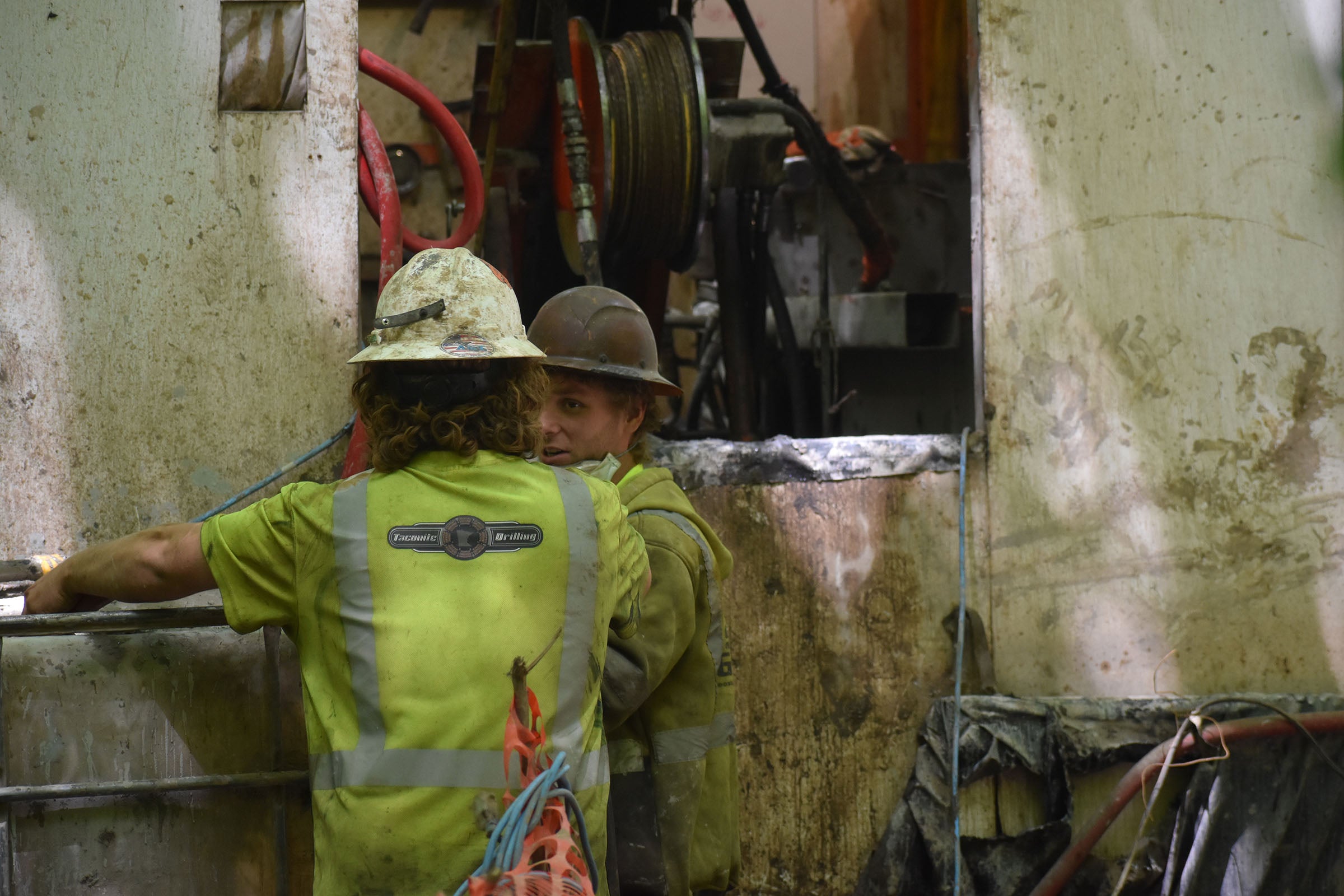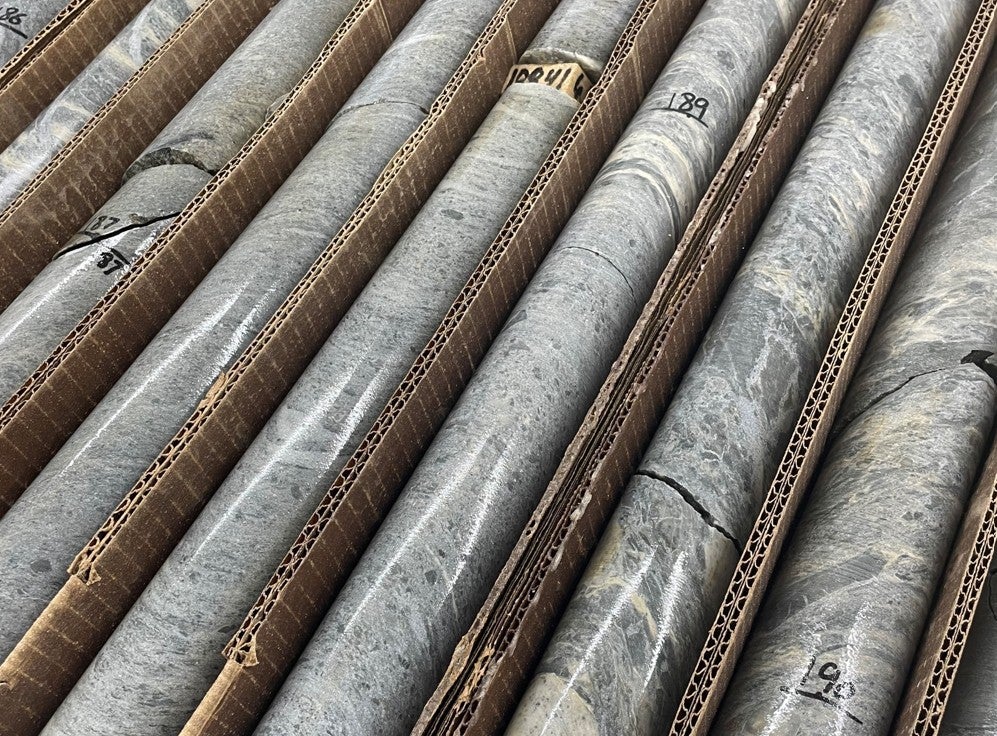A mining company has received conditional approval to begin exploratory drilling for copper and gold in northern Wisconsin, but state regulators say it must still meet additional requirements before work gets underway.
Canadian company GreenLight Metals, doing business as Green Light Wisconsin, wants to conduct exploratory drilling of the Bend Deposit at a 40-acre site owned by the U.S. Forest Service around 19 miles northwest of Medford in Taylor County. The deposit is believed to contain 4 million tons of mostly copper and gold.
On May 4, the Wisconsin Department of Natural Resources authorized the company’s plans to drill up to eight holes at six sites impacting less than an acre within the Chequamegon-Nicolet National Forest.
News with a little more humanity
WPR’s “Wisconsin Today” newsletter keeps you connected to the state you love without feeling overwhelmed. No paywall. No agenda. No corporate filter.
“We’re pleased to have received DNR approval of our very detailed work plan,” Dan Colton, the company’s president and CEO, told Wisconsin Public Radio.
Colton said the company will now work to secure a wastewater permit and authorization of its work plan by the U.S. Forest Service. In September, Acting Forest Supervisor James Gries said the company’s plan was consistent with the forest’s land and resource management plan.
“We’ve asked the DNR to revise our work plan to include summer drilling, so that we can implement this plan either this summer or this coming winter,” Colton said. “U.S. Forest Service would like to refresh its authorization to proceed because its authorization in September was predicated on us doing drilling strictly under frozen conditions.”
A Forest Service spokesperson didn’t respond to a request seeking confirmation of the company’s statements. In its September letter, the Forest Service said the company must notify the agency 60 days in advance of any major changes to the plan.
Mining company Aquila Resources last conducted drilling of the deposit in 2012, which was first explored in the early 1990s by the Jump River Joint Venture. Green Light is leasing mineral rights from Soo Line Railroad, a subsidiary of Canadian Pacific or CPKC Railway. Green Light obtained an exploration license last year that remains in effect through June 30. The DNR said the company has not yet filed to renew its license.
Ben Callan, manager for the DNR’s Integration Services Section, said the company has applied for a general permit under its Wisconsin Pollutant Discharge Elimination System program that regulates wastewater discharges.
“They’re proposing to obtain or acquire water from the North Branch of the Yellow River. That withdrawal does not require a permit,” Callan said. “It’s once they use that water as a part of their drilling operations, that it becomes regulated as wastewater.”
He said it’s uncertain when the permit may be issued. The DNR has said wetlands and stormwater permits won’t be required based on information provided.
As the company moves forward, it must also submit an updated $50,000 surety bond to cover the cost of abandoning drill holes. Colton said they plan to provide the bond prior to drilling. He said exploration may not occur until late summer or early winter due to high demand and limited availability of drill rigs.
Green Light must notify the DNR at least 48 hours in advance of any drilling. The company has said it expects work may be conducted in phases and last about 10 weeks. Once work commences, the company must comply with detailed conditions for wetlands and waterways, erosion control and endangered resources at the site. It must also document its work.
Colton said the company hopes drilling will lead to mining of metals like copper at the site.
“These metals are in demand because of their importance in the production of clean energy technologies like windmills, solar panels and electric vehicles,” Colton said. “We know that the Soo Line property is mineralized with these metals, and we hope to increase that resource.”
Last year, President Joe Biden invoked the Defense Production Act to ensure access to critical minerals through environmentally responsible domestic mining, recycling and reuse. The shift to electric vehicles, solar plants and wind farms is set to increase demand for minerals like lithium, nickel and copper, according to the International Energy Agency. A 2021 report by the agency said demand for copper is expected to grow more than 40 percent to reach goals under the Paris Climate Agreement.
The DNR stated in its letter that any appeals to the agency’s decision must be filed within 30 days.
Last fall, Green Light also submitted its exploration plan for the Reef Deposit in October. That deposit is roughly 12 miles east of Wausau in Marathon County near the Dells of the Eau Claire River. It’s believed to contain around 454,000 tons of gold reserves. The company stated it planned to drill at up to nine sites.
Molly Gardner, the DNR’s metallic mining coordinator, said the agency requested additional information that Green Light has yet to submit. Colton said they now plan to move forward with revisions to their plan for the Reef Deposit.
Metals like gold and copper that occur in sulfide ore bodies haven’t been mined in Wisconsin since the Flambeau mine shut down in 1997. The mine served as a catalyst for the state’s sulfide mining moratorium that was repealed in 2017 under a law passed by the Republican-controlled state Legislature.
The moratorium required companies to prove other mines operated and then were closed for 10 years without causing environmental harm.
Some residents and tribes have expressed concerns that the company’s plans would contaminate water resources, particularly surrounding the Reef Deposit. Industry officials hope the 2017 law will open the door to mining and bring high-paying jobs.
Wisconsin Public Radio, © Copyright 2025, Board of Regents of the University of Wisconsin System and Wisconsin Educational Communications Board.




